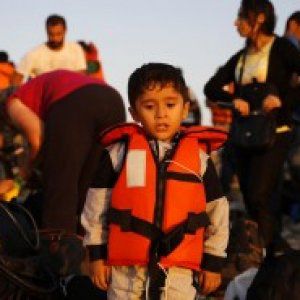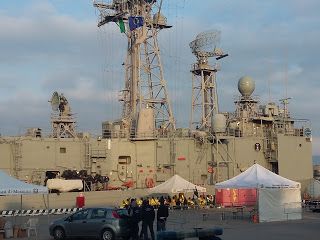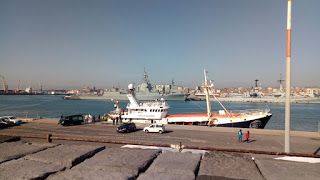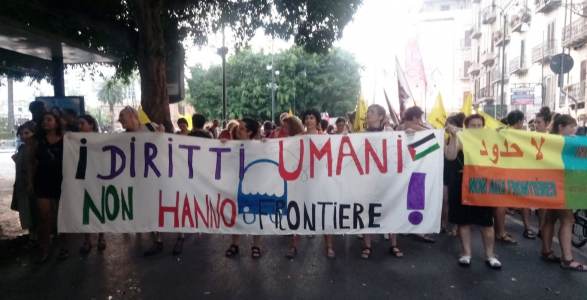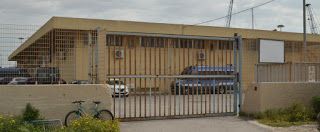Unaccompanied Foreign Minors: An Open-Air Orphanage
From Repubblica.it
According to data from the Ministry of the Interior, 25,846 minors arrived in Italy via the Mediterranean in 2016. Sicily is the region which hosts the highest proportion of them. As part of a project to monitor the new reception centres, the Guarantor for Childhood and Adolescence visited Catania and Noto. Oxfam and Borderline Sicilia, however, have provided damning reports.
The Guarantor, Filomena Albano, has travelled from North to South. After the episode at Cassano delle Murge (Bari), where the Guarantor was detained by the minors, despairing at the conditions in which they live and demanding their right to be heard, the journey continued to Sicily, reaching Catania and Noto on March 3rd and 4th. The monitoring project began in January in Florence, Bologna and Turin, with the aim of checking the conditions of minors so as to facilitate the process of integration, finally reaching the Italian regions in the front line of the reception of unaccompanied minors (5,876 in Sicily as of 31 January 2017 according to data from the Ministry of Labour and Social Policy).
The Guarantor’s Report. Aside from the shared meeting with the relevant institutions, three centres were visited in Catania and one in Noto. The Guarantor spoke of “vulnerability and fragility”, confirming that “the length of time spent in initial reception go well beyond the legal limits”. After 60 days, in fact, the minors hosted in the centres ought be transferred to “second reception” centres, charged with offering a series of services, including education, more fitting to the minors’ protection and development. Some, however, wait up to eight months before being transferred, during which time – at the structure’s discretion – they are usually not involved in any other activities. While recognising the existence of an institutional network in Sicily, and commending the centres visited, Filomena Albano has indicated some serious problems: “uneven procedures, a lack of posts, and a lack of integration”. “The information gathered”, she announced, “will be detailed in a report before the Summer.”
Oxfam’s official complaint. On the other hand, the report “Great Expectations Left to Drift” speaks of material deprivation, human rights ignored and an improvised reception system. The report was realised by Oxfam within the OpenEurope project, along with Borderline Sicilia and the Diaconia Valdese. It tells of minors closed within the Hotspots of Pozzallo and Lampedusa or detained on the quay of the port of Augusta, along with adults, without any appropriate division by age or gender, for weeks at a time. Minors abandoned for months at a time in centres where sometimes they are forced to share lunch of a sandwich between four people. Minors ignorant of their rights, who have their year of birth deleted in order to hide their young age, prevented from understanding what is happening due to a lack of mediators who speak their language, or even English and French. Minors forced to search for clothes in the rubbish bins, sometimes victims of psychological or physical violence by the very staff who are meant to protect them. Minors who wait for months to be assigned a legal guardian. And who, upon turning 18, are taken in the dead of night and dumped in the street.
On site monitoring. There are 5,373 missing minors according to the report from the Ministry of Work. Of these, only some left in order to make the journey to reach relatives (mainly those from Eritrea). The others, trace of whom is lost all too easily because no one looks for them, simply left the centres in which they were placed. Lucia Borghi, who monitors Western Sicily for Borderline Sicilia identifies a few reasons that they run away: the isolation of the centres, and absence of care, integration, services, clarity, protection. “The approach is an emergency one. There’s no will to create a real practice, even if the migratory flow continues for years.”
DIY migrant reception. “Long waiting times, lack of planning, abandonment and frustration” reports the lawyers Paola Ottaviano of Borderline Sicilia, describing the “frequent episodes of violence and abuse within the centres.” “Anyone in Italy can play at being the manager of an Extraordinary Reception Centre (CAS*)”, she denounces. “The opening of such centres has created a real business. There are no checks. There is a total lack of competent staff. There’s a flow of money without boundaries, with the logic of getting the most by offering the least.” As far as minors are concerned, Sicily has been left on its own, because the current laws provide that the social service of the local council must take charge of the arriving minors. Thus, if one counts the increasing number of foreign children arriving on our coastline (11,000 more than in 2015), and that in Italy 28 of them disappear every day, one can better understand the scale of the dramatic events which are transforming the island into an open-air orphanage, along with the train stations of Catania, Rome and Milan, where minors are once again search for a path between escape and hope.
Maria Cristina Fraddoisio
Project “OpenEurope” – Oxfam Italia, Diaconia Valdese, Borderline Sicilia Onlus
*CAS = Centro di Accoglienza Straordinaria (Extraordinary Reception Centre)
Translation by Richard Braude

